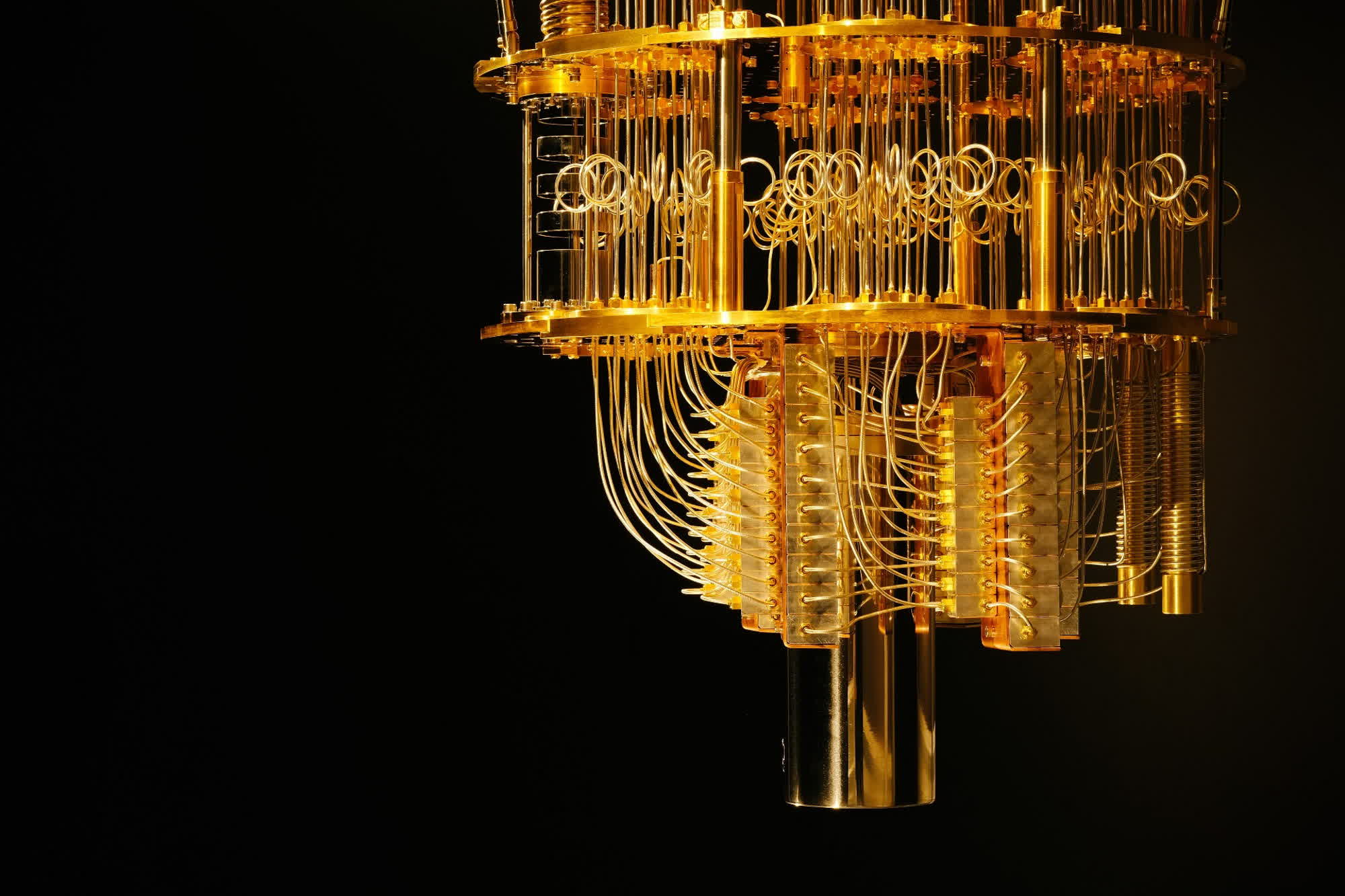Forward-looking: After exiting the PC market and attempting to position the Watson AI supercomputer as the future of healthcare, IBM is focusing on making quantum computers practical and useful. Now, the company aims to usher in a new era in the quantum business with Japan's assistance.

IBM will partner with Japan's National Institute of Advanced Industrial Science and Technology (AIST) to develop a quantum system equipped with 10,000 qubits, which is 75 times more than the current quantum computers have.
This unprecedented super quantum machine is expected to be ready by 2029 and will significantly outclass today's quantum systems, which are equipped with no more than 133 qubits. According to Nikkei Asia, the IBM-AIST partnership will be announced publicly in the coming days and will leverage Japan's strong IT manufacturing capabilities.
IBM and AIST will develop new semiconductor parts and circuits designed to operate at near-absolute zero temperatures (K), as a quantum computer cannot perform its complex (and error-prone) calculations at room temperature. Japanese component manufacturers will be part of the project, and Japan's technology companies will have privileged access to the new quantum systems.

AIST will lobby for quantum computer adoption and offer training programs to Japanese companies, and IBM will likely be very happy to help with that. The tech giant is serious about quantum computing development, with a defined roadmap that includes a 2,000-qubit commercial system by 2033.
The expected 10,000-qubit quantum computer clearly goes way beyond IBM's rosiest expectations, all the more so as the plan is about a system that doesn't need an ancillary supercomputer working to fix the errors made by the quantum chips. Today's quantum computers cannot be used as traditional computing machines yet, and they usually need a complex, multi-room setup to try and keep errors and issues to a minimum.
IBM is betting big on quantum computers, a novel class of computing machines which have seemingly started to show the ability to tackle problems that traditional "brute force" simulations cannot. This "quantum utility" makes quantum computers a useful tool for scientific research, IBM said, although Big Blue could be wrong on this as well.
The recent Qommodore 64 project was seemingly able to effectively simulate IBM's quantum utility experiments on the puny 1MHz CPU of a Commodore 64, no qubits required.
Japan to help IBM build a massive 10,000-qubit quantum computer